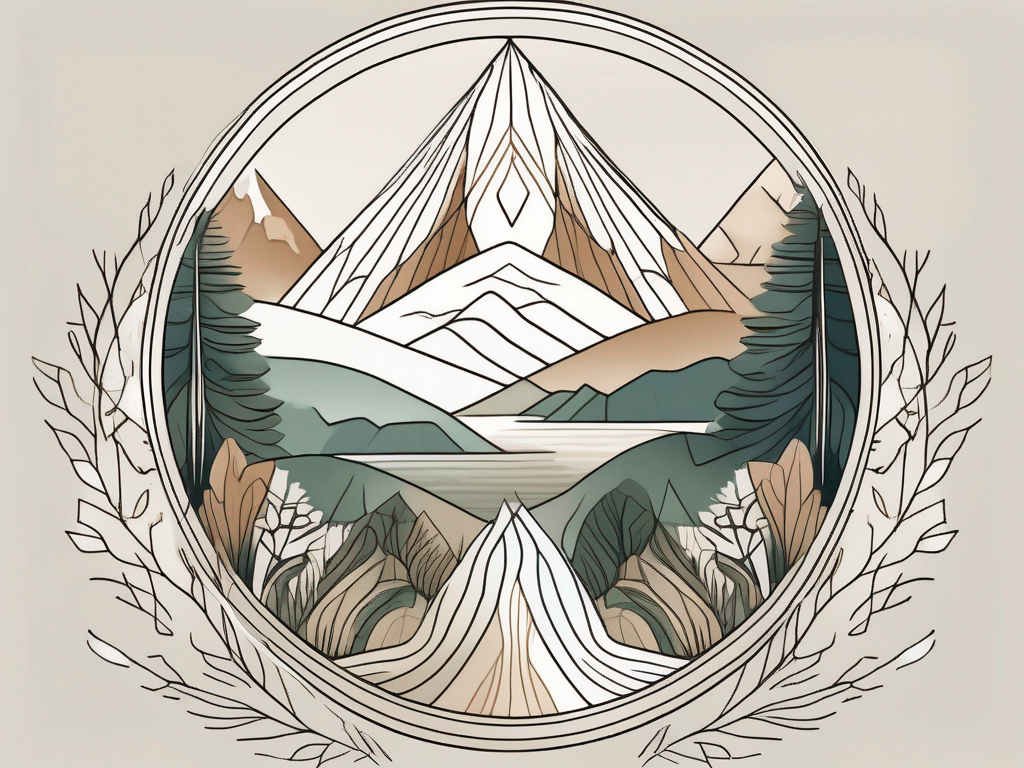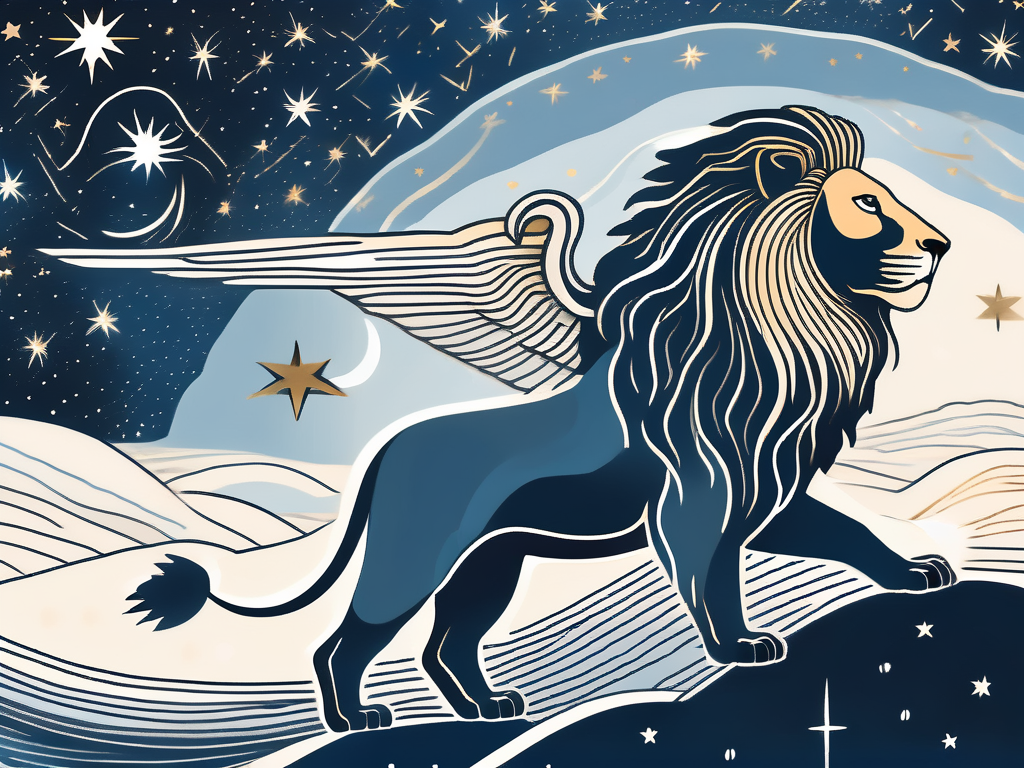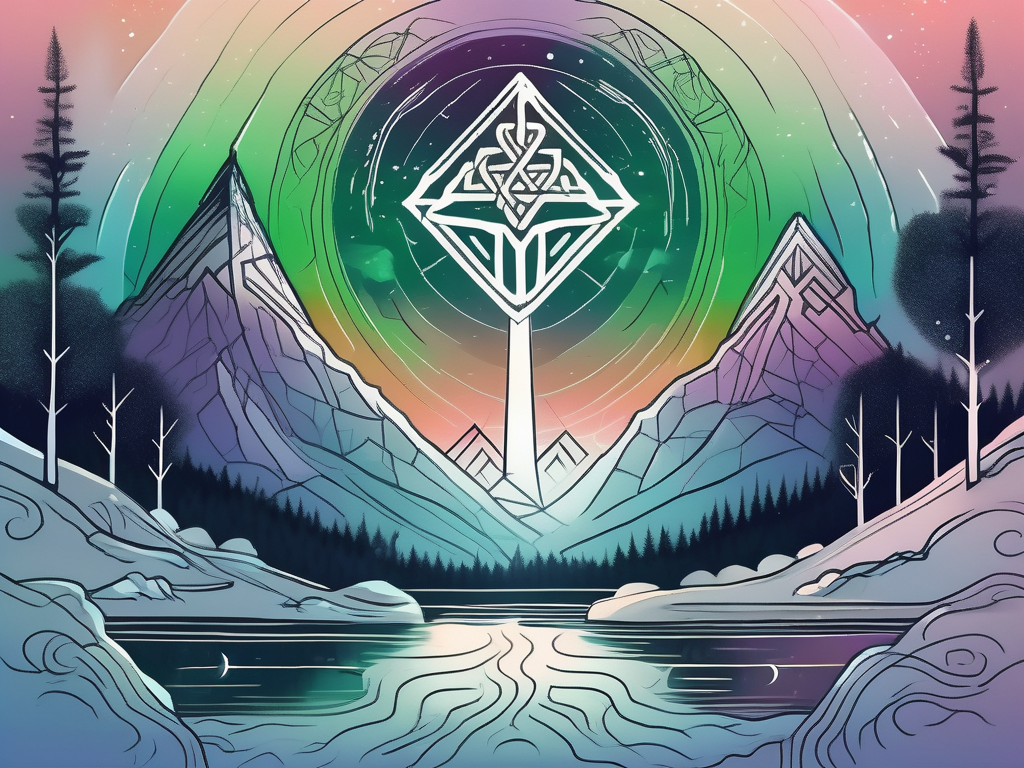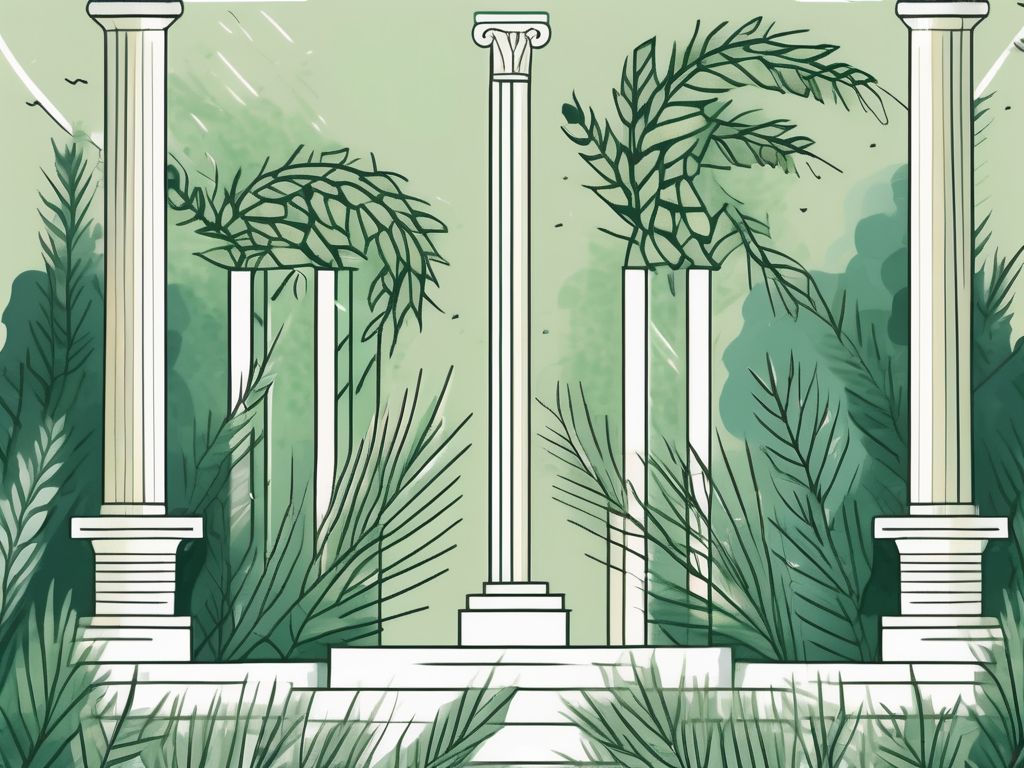Every ancient civilization had its own pantheon of gods and goddesses, each with their own fascinating stories and mysteries. One such deity is Gaia, the Greek goddess of the Earth. In this article, we will delve into the captivating world of Gaia and explore her origins, significance, influence, and symbolism. Get ready to embark on a journey that will uncover the wonders of Gaia and shed light on her timeless allure.
Understanding Gaia: An Introduction
Before we dive into the myths and legends surrounding Gaia, let’s take a moment to understand who she was in Greek mythology. Gaia, also known as Gaea, was born from Chaos, the void that existed before everything else. As the personification of the Earth itself, Gaia played a fundamental role in the Greek cosmic hierarchy. She was revered as the mother of all life and the primal force from which everything sprang forth.
As we explore Gaia’s rich history, we will discover the origin of this mystical goddess and her pivotal role in shaping the universe as we know it.
But what exactly was Chaos? In Greek mythology, Chaos was the first primordial deity, representing the formless void from which everything else originated. It was from this chaotic state that Gaia emerged, bringing order and structure to the cosmos.
Now, let’s delve deeper into Gaia’s origin story and uncover the fascinating details of her early life.
The Origin of Gaia in Greek Mythology
According to ancient Greek mythology, Gaia emerged from Chaos and became the first deity to exist. Often depicted as a beautiful woman, Gaia married her own offspring, Uranus (the sky). Together, they became the parents of the mighty Titans, Cyclopes, and Hecatonchires.
But why did Gaia marry her own son? In Greek mythology, this union symbolized the union of the Earth and the sky, representing the harmonious relationship between these two fundamental elements. It was through this divine marriage that Gaia and Uranus brought forth the next generation of gods and goddesses.
By exploring Gaia’s origin story, we gain insight into the ancient Greek belief system and their fascination with the forces of nature. Gaia’s divine lineage sets the stage for the epic tales that follow.
Now that we have a better understanding of Gaia’s beginnings, let’s explore her role and significance in Greek mythology.
Gaia’s Role and Significance
As the personification of the Earth, Gaia held immense power and influence over every living thing. She was the giver of life, providing nourishment and sustenance for all creatures. Gaia was also closely associated with the concept of fertility, representing the Earth’s abundance and the cycle of life.
But Gaia’s influence extended beyond the natural world. She was also considered the mother of the gods, as many of the Olympian deities were her descendants. Gaia’s connection to the divine realm further solidified her importance in Greek mythology.
In the next section, we will delve deeper into Gaia’s family connections and explore the intriguing stories of her offspring and descendants. Through these tales, we will uncover the intricate web of relationships that shaped the Greek pantheon.
Gaia’s Family: The Titans and the Giants
Gaia’s family tree is as enigmatic as the goddess herself. Let’s unravel the tales of her progeny and the significant role they played in Greek mythology.
Gaia, the primordial goddess of the Earth, was a powerful and revered figure in Greek mythology. She was believed to be the mother of all life, the very embodiment of the Earth itself. Her family tree is filled with fascinating characters who shaped the world as we know it.
Gaia’s Offspring: The First Generation
The Titans were the first generation of divine beings born to Gaia and Uranus. Among them were notable figures such as Cronus, Rhea, Oceanus, and Tethys. These powerful entities symbolized various elements of nature and held substantial influence over the world.
Cronus, the leader of the Titans, represented time and was known for his cunning and ambition. Rhea, his sister and wife, was the goddess of fertility and motherhood. Oceanus and Tethys, on the other hand, were the personifications of the vast ocean and its nurturing qualities.
Each Titan possessed unique abilities and attributes, contributing to the tapestry of Greek mythology and shaping the cosmos as we know it. Hyperion, for example, was associated with light and was often depicted as the father of the sun, moon, and dawn. Mnemosyne, the goddess of memory, played a crucial role in preserving the stories and history of the gods.
Gaia’s Descendants: The Second Generation
Building upon the legacy of the Titans, Gaia’s descendants continued to leave an indelible mark on Greek mythology. The Giants, born from the blood of Uranus when he was castrated by Cronus, were formidable creatures known for their immense strength and size.
The Giants, also known as Gigantes, were a race of monstrous beings who challenged the authority of the Olympian gods. They were said to have been born with serpents for legs and possessed incredible powers. Enceladus, for instance, was known for his ability to cause earthquakes, while Alcyoneus was said to be invincible within his homeland.
With their towering presence and ferocious nature, the Giants became adversaries of the Olympian gods, leading to epic battles that tested the limits of both mortals and immortals. The most famous of these battles was the Gigantomachy, a fierce conflict between the Giants and the gods that lasted for ten years.
During the Gigantomachy, the gods fought valiantly against the Giants, employing their divine powers and weapons. Zeus, the king of the gods, hurled thunderbolts, while Athena, the goddess of wisdom, wielded her mighty spear. The battle was a true test of strength and determination, with both sides unleashing their full might.
In the end, the Olympian gods emerged victorious, thanks to their superior powers and strategic prowess. The Giants were defeated and cast down into the depths of Tartarus, the darkest abyss of the underworld, where they would forever remain imprisoned.
The tales of Gaia’s family, the Titans and the Giants, are a testament to the rich and complex nature of Greek mythology. They remind us of the eternal struggle between order and chaos, and the enduring power of the gods and goddesses who shaped the world.
Gaia’s Influence in Ancient Greek Culture
It is undeniable that Gaia’s presence extended far beyond the realms of myth and legend. Her captivating character influenced various aspects of ancient Greek culture, leaving an imprint that can still be seen today.
Gaia in Literature and Philosophy
From the works of Homer to the philosophical musings of Plato and Aristotle, Gaia’s presence reverberated through the pages of ancient Greek literature and philosophy. Writers and thinkers often used Gaia’s imagery and symbolism to explore their understanding of the natural world and the forces that governed it.
Her name became synonymous with Mother Earth, a concept deeply rooted in the collective consciousness of ancient Greece.
Gaia in Art and Sculpture
The artistic expression of Gaia’s beauty and significance can be witnessed in various ancient Greek sculptures and artworks. From intricate statues and reliefs to ornate pottery, Gaia was frequently depicted alongside other gods and goddesses, emphasizing her essential role in the divine hierarchy.
Artists aimed to capture her eternal grace and the profound connection between humanity and the Earth.
Gaia’s Symbolism and Representation
The symbolism surrounding Gaia extends beyond her mere existence as a deity. Let’s explore how she became synonymous with key concepts in ancient Greek culture.
Gaia as Mother Earth
Gaia’s most prevalent symbolism is that of Mother Earth. She was seen as the nurturing and life-giving force that sustained all living beings. Gaia’s association with fertility and agriculture made her a beloved figure, revered by farmers and those who relied on the Earth’s bounty for survival.
Her portrayal as a compassionate mother resonated deeply with the Greek people, emphasizing the importance of cherishing and respecting the natural world.
Gaia’s Connection to Fertility and Agriculture
Gaia was intimately connected to the agricultural cycles and the prosperity of the land. Farmers and cultivators would pay homage to her, seeking her blessings for fertile soil, abundant harvests, and healthy livestock.
She embodied the interconnectedness between humans and nature, reminding us of the delicate balance required for a sustainable existence.
The Modern Interpretation of Gaia
While Gaia was once central to ancient Greek mythology and culture, her legacy continues to live on in different forms in the modern world.
Gaia in Contemporary Pop Culture
From movies and literature to music and fashion, Gaia’s influence can be found throughout contemporary pop culture. Her enigmatic aura and connection to nature have captivated the imagination of artists and creators, sparking new interpretations and reimaginings of this timeless goddess.
Whether it be in environmental activism or sustainable living, Gaia’s name and symbolism are invoked to remind us of our responsibility towards the Earth.
Gaia’s Role in Environmental Discourse
Perhaps Gaia’s most significant modern influence is found in environmental discourse. The Gaia hypothesis, proposed by scientist James Lovelock, suggests that the Earth is a self-regulating organism that maintains optimal conditions for life.
By recognizing the Earth as a living and interconnected entity, the Gaia hypothesis has spurred important conversations about environmental conservation and the need to protect our planet.
Unearthing the Mystique of Gaia
The mystique surrounding Gaia, the Greek goddess of the Earth, continues to enchant and inspire us. From her origin story to her enduring influence in ancient Greek culture and beyond, Gaia’s allure lies in her embodiment of the Earth’s power and beauty.
As we navigate the complexities of the modern world, we can still learn valuable lessons from Gaia. The reverence for nature, the acknowledgment of our interconnectedness, and the responsibility to protect our planet are just a few of the timeless teachings she imparts.
Let us embrace the mystique of Gaia and draw strength from her eternal presence, for she is a reminder of the enduring power and resilience of our planet Earth.












